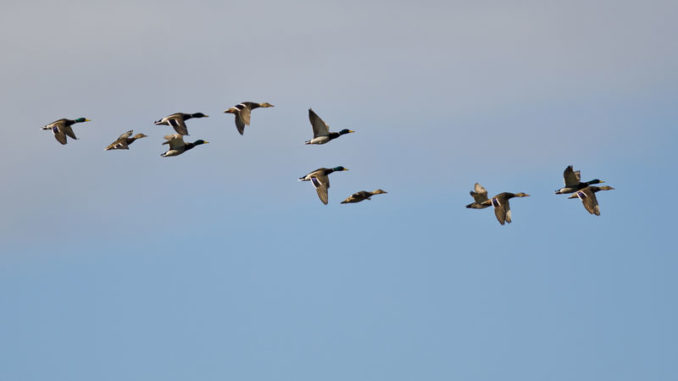
The state’s 2019-2020 duck season is a wrap, but the issue of who legally owns the massive Catahoula Lake area and the fight to keep it open for public waterfowl hunting access is not over yet, according to Louisiana Attorney General Jeff Landry.
There was good news for the state’s taxpayers coming from the case this past week when the Louisiana Supreme Court ruled in favor of part of the state’s request to reverse a lower court’s decision in Cooks & Crooks v. Louisiana Department of Natural Resources. The ruling reversed an earlier $38.29 million damage award as well as an additional $28.46 million in judicial interest regarding the case, Landry said.
However, the Attorney General also said that the ruling did not reverse the issue of whether the famous and historical duck hunting area will be available to the public as it has been in the past.
Basically, the high court made a ruling that takes the taxpayers off the hook for damages, but did not make a call on the designation of whether the water was a lake or a river. The state can ask for a rehearing on that matter and Landry indicated that, and other options would be looked at.
While there has been no official word, that request is expected fairly soon.
“The fight is not over yet as the Supreme Court did not reverse the lower court’s reclassification of Catahoula Lake as a river, thus leaving some possible confusion regarding the accessibility of the Lake for public hunting and fishing,” concluded Attorney General Landry. “We will evaluate all our options, including a rehearing and legislation; and we continue to do all we legally can to protect the rights of sportsmen to both access and harvest from our state’s bountiful waters.”
Catahoula Lake’s history
Catahoula Lake is a 30,000 acre lowland area that was historically flooded annually by overflow from the Red, Black and Mississippi rivers, along with direct flow from Little River. Controversy has surrounded the area since the 1960’s when lock construction on the Black River permanently raised the water level. However, the loss of the Catahoula area was mitigated by an 18-mile long diversion canal to drain the lake into the Black River below the lock and dam each summer. A large, gated concrete control structure was placed on the channel where it exited the lake to allow human control over water levels. That project was completed at taxpayer expense in 1972.
The current legal dispute began in 2006 when landowners filed suit saying that the landowners surrounding the waterbody are the owners, not the state. Since that time, records show that Rapides Parish ad-hoc Judge James Boddie ruled in favor of the landowners, ruling that the state had unlawfully expropriated the river banks. That judgement had originally included an award that the state owed landowners $38 million in damages and $4.5 million in unpaid oil and gas royalties, plus interest.
The legal question remains that if it is defined as a lake, Catahoula Lake belongs to the state and and stays open to public access. If it is legally deemed a river, the land on each “bank” is private property.
Louisiana Department of Wildlife and Fisheries Secretary Jack Montoucet has been a strong supporter of overturning the ruling which will block public access to the area, which is contrary to over 200 years of public access on Catahoula Lake.
“To remove Catahoula Lake from public access could negatively affect waterfowl in the state, because it would limit LDWF’s ability to manage water levels that are key to habitat management,” Montoucet has said.
